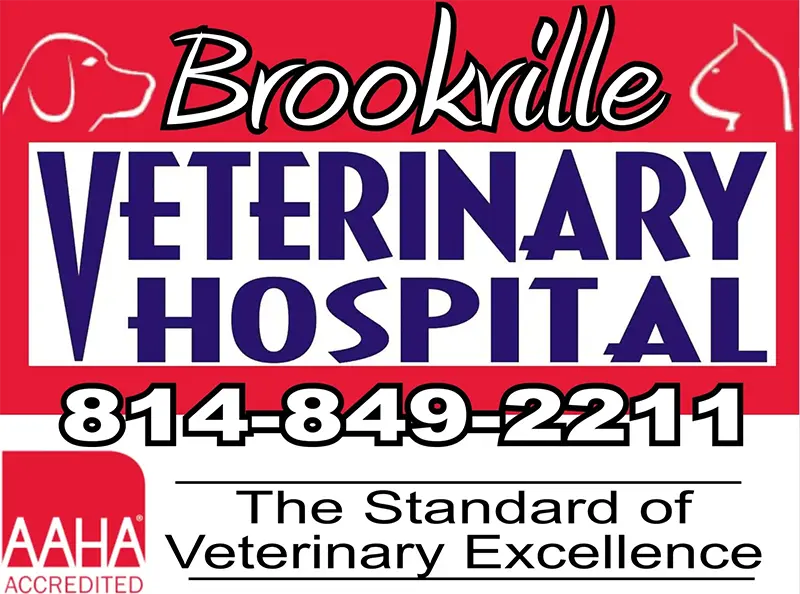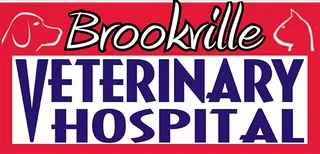Puppy Love: National Puppy Day

This month has been handed over to the dogs: National Puppy Day is on the 23rd! This ‘pawesome’ occasion was created not just to honor little Fido, but also to promote appropriate puppy adoption practices. In this article, a local Brookville, PA veterinarian focuses on pups.
What Is The Origin Of National Puppy Day?
This cute holiday originated in 2006. Colleen Paige, a pet lifestyle specialist, founded it. While this is a great time to share some cute puppy photos, there is a deeper purpose. Paige wanted to call attention to puppy mills and the awful practices they engage in. As you may know, this is a major animal welfare issue.
We’re pleased to report that there has been improvement in this area in recent years. Many pet businesses are now refusing to accept puppies from mills. There are also more statutes regulating dog breeders than there were in 2006. However, there is a long way to go.
How Do You Celebrate National Puppy Day?
You don’t have to go crazy to get in the spirit and spread the word. Simply sharing images and infographics on pups and puppy adoption will help!
Another excellent alternative is to spread information about available puppies through social media. Of course, if you happen to have a puppy, you can reward him with a new toy or special treat.
How Can I Fight Puppy Mills?
Puppy mills are especially evil because, at the end of the day, they exploit people’s goodwill and love of puppies while showing little or no concern for the puppies themselves. While some of their pups find loving homes, the breeding dogs they use are frequently kept in horrible conditions. Many do not receive appropriate care. Unfortunately, it is fairly common for the puppies to be abandoned or harmed once they are no longer able to have offspring.
Of course, it’s not always easy to spot them.
Here are some pointers.
Adopt, Don’t Shop: As public opinion shifts against puppy mills, this slogan is truly gaining traction. Begin your search at the local shelter. They frequently get puppies as well!
Support Animal Welfare Policies: If you love animals, you’ll find plenty of causes and regulations to support. Keep an eye out for those involving puppy mills and breeders.
Don’t Buy Pets Online: You might want to start looking for your dog online. For example, if you want a puppy of a particular breed, searching for local breeders makes sense. However, you should be able to see the breeder and kennel in person. Be extremely skeptical about listings on marketplaces such as Craigslist.
Support School ‘petucation’ Programs: The Humane Society has an excellent program for elementary schools called Nose-to-Tail. If you are a teacher and/or have a child in elementary school, you can suggest including it in the curriculum. Alternatively, go through the information with your child at home. You may get more information about the program here.
How Can I Distinguish A Breeder From A Puppy Mill?
This is not always easy! To be fair, there are some great breeders out there. It’s not always easy to tell the difference from an online ad. Puppy mills may post gorgeous images of their pets, and the pups may appear happy and healthy.
Transparency is crucial. You should be allowed to visit the puppies and observe where they are kept. The space should be clean, comfortable, and roomy enough. While puppy cams are not available everywhere, they can be a good sign. In general, the breeder should not only enable you to visit where their dogs are housed, but also actively encourage it.
Another distinguishing feature is the availability of different breeds. Responsible breeders typically breed because they have a strong affinity, knowledge, or passion for a particular breed. As a result, most breeders specialize in a few specific breeds—often only one. A breeder who works with a diverse roster of breeds might be more concerned with profit than with responsible breeding.
Another red flag would be if and how they vetted you. Good breeders are very particular about who they allow their puppies to go to. You may be required to complete an application or perhaps participate in a meet-and-greet or interview.
Finally, review the puppy adoption paperwork. A good breeder will include pedigree papers, immunization certificates, breed information, and possibly some care instructions. You may also need to verify that you plan to have your canine companion fixed or, in some situations, pay an additional charge for the right to breed him. Good breeders will also often provide return options if the puppy develops specific congenital health concerns.
How Do I Choose a Puppy?
Choosing little Fido can be challenging. Puppies are super cute, and it can be difficult to resist their fuzzy faces. However, this is a lifelong commitment, so you need to think about more than just how adorable little Fido is. While there are no bad puppies, there are clearly bad matches between canines and their people.
Naturally, raising Fido yourself allows you to teach and shape his personality. For example, a dog that has grown up with children and cats is more likely to be tolerant than one who has never seen them, and a pup who has been properly socialized is less likely to develop certain behavioral issues. However, breed does play a role. Reading basic breed information might help you get a better notion of what to expect.
Here are a few things for you to check out:
- Expected Lifespan
- Average Adult Size
- Grooming Needs
- Trainability and Activity Needs
- Good with kids
- Good with pets
- Common Health Concerns
That being said, there is still plenty of room to open your heart. You might just fall in love with a specific dog. That’s fine, too!
Getting Ready for Your New Puppy
Adopting a puppy is a major decision that will significantly impact your life and your pet’s. You’ll need to make some plans before the big day.
Shopping: You’ll need to pick up (or order) a few items for your animal friend. Little Fido will require food, treats, dishes, grooming materials, toys, bedding, paw care items, a harness, leash or collar, ID tags, and a kennel or carrier. GPS tags are not a bad idea, either!
Petproofing: Little Fido is both curious and playful. This can be a hazardous mix! Baby dogs are all in significant danger of swallowing or choking on hazardous objects. Dogs love to investigate things by, well, eating them. That can be extremely harmful, as many ordinary household objects are toxic to them. That list includes things like toxic plants, chemicals, medication, small and sharp objects, plastic bags and ties, wires and cords, and household chemicals. Ask your Brookville, PA veterinarian for advice on petproofing.
Contact Your Brookville, PA Veterinary Clinic: Speaking of veterinarians, one of the first things you should do is phone us to schedule an appointment. Your pet will need a thorough examination. Vaccinations, parasite management, microchipping, and spay/neuter surgery should all be on the agenda during the first year. While you’re here, don’t be hesitant to seek advice on grooming, food, exercise, and training. We absolutely love watching pups grow from exuberant youngsters to happy, healthy adult dogs!
For further information on puppy care, talk to your Brookville, PA veterinarian. We are always here to help!

